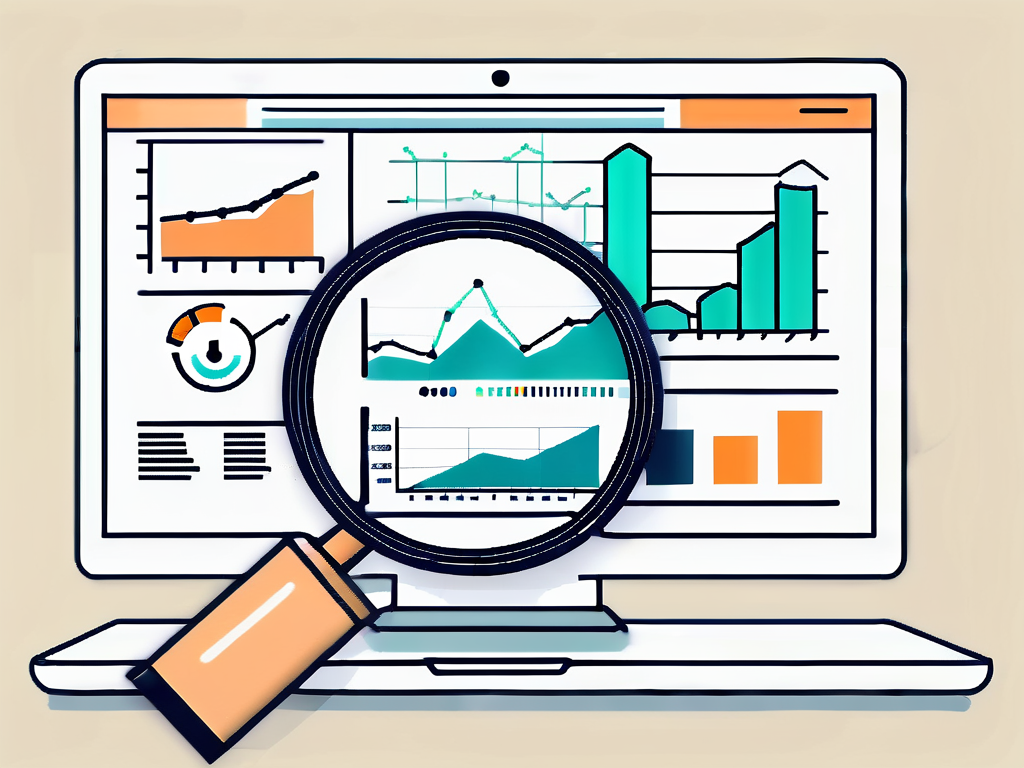Lead generation is a crucial element for the success of any business. In today’s digital age, the right software can greatly enhance your lead generation efforts. So, what are the best software options available? In this article, we will explore the various aspects of lead generation software and provide valuable insights to help you make an informed decision.
Understanding Lead Generation
Before we delve into the best software options, let’s first understand the concept of lead generation. Lead generation refers to the process of attracting and capturing potential customers or leads for your business. It involves gathering contact information, such as email addresses or phone numbers, to nurture and convert these leads into customers.
Lead generation is a fundamental aspect of any successful marketing strategy. By implementing effective lead generation tactics, businesses can establish a steady stream of potential customers who have shown interest in their products or services. This proactive approach allows companies to engage with their target audience and guide them through the buyer’s journey towards making a purchase decision.
The Importance of Lead Generation
Lead generation plays a pivotal role in growing your customer base and increasing your revenue. The quality and quantity of leads generated directly impact your business’s success. With effective lead generation strategies in place, you can target the right audience and convert them into loyal customers.
Moreover, lead generation is not just about acquiring new customers; it also focuses on building relationships and fostering customer loyalty. By consistently providing valuable content and personalized interactions, businesses can strengthen their connections with leads and customers, ultimately leading to repeat business and referrals.
How Lead Generation Works
Lead generation involves multiple stages. It starts with identifying your target audience and creating compelling content to attract their attention. Once you have grabbed their interest, you need to capture their contact information through forms or landing pages. Finally, you can nurture these leads through personalized emails, follow-ups, and targeted marketing campaigns.
Successful lead generation requires a strategic approach that combines data analysis, creativity, and continuous optimization. By leveraging analytics tools to track the performance of your lead generation efforts, you can refine your strategies based on real-time insights and improve the overall effectiveness of your campaigns. Consistent monitoring and adaptation are key to staying ahead in the competitive landscape of lead generation.
Criteria for Choosing Lead Generation Software
When selecting the best lead generation software for your business, several key factors should be considered. Let’s explore some of these important criteria:

Lead generation software plays a vital role in helping businesses attract potential customers and convert them into leads. It is essential to choose a software solution that aligns with your business goals and objectives to maximize its effectiveness.
Ease of Use
Good lead generation software should be user-friendly and intuitive. It should not require extensive technical knowledge or coding skills to set up and use. Look for software that offers a smooth and seamless experience, allowing you to create and manage campaigns effortlessly.
Furthermore, consider the availability of training and support resources provided by the software vendor. A robust support system can help you make the most of the software and troubleshoot any issues that may arise during usage.
Integration Capabilities
Integration is a crucial aspect of lead generation software. It should seamlessly integrate with your existing systems, such as your customer relationship management (CRM) software and marketing automation tools. This ensures that your leads are automatically synced and nurtured with the relevant information.
Additionally, look for software that offers flexibility in integration options, allowing you to connect with a wide range of third-party applications and services. This flexibility can enhance the overall efficiency of your lead generation process and streamline data management across different platforms.
Pricing and Value
Consider your budget while choosing lead generation software. Look for a solution that offers the right balance between affordability and functionality. Analyze the features and benefits provided by each software option and determine the value it can bring to your business.
Keep in mind that some software providers offer scalable pricing plans based on the size of your business or the specific features you require. This scalability can be advantageous as your business grows and your lead generation needs evolve over time.
Types of Lead Generation Software
There are various types of lead generation software available, each catering to specific needs and strategies. Let’s explore some of the most popular types:

Email Marketing Software
Email marketing software helps you create and send targeted email campaigns to engage and convert leads. It provides features like email automation, personalization, and analytics to optimize your email marketing efforts.
Social Media Tools
Social media tools enable you to generate leads through platforms like Facebook, Instagram, and LinkedIn. They offer features like lead capture forms, social media monitoring, and analytics to help you identify and engage with potential customers.
SEO Tools
SEO tools assist in optimizing your website for search engines to drive organic traffic and capture leads. They provide keyword research, on-page optimization, and backlink analysis, among other features, to enhance your website’s visibility.
Content Management Systems (CMS) are another essential type of lead generation software that businesses use to create and manage digital content. CMS platforms like WordPress, Drupal, and Joomla offer tools for content creation, publishing, and optimization, making it easier for businesses to attract and convert leads through valuable content.
CRM Software
Customer Relationship Management (CRM) software helps businesses track and manage customer interactions and data throughout the customer lifecycle. CRM tools like Salesforce, HubSpot, and Zoho provide features for lead scoring, pipeline management, and customer communication, enabling businesses to nurture leads effectively and drive conversions.
Reviewing Top Lead Generation Software
Now that we have explored the different types of lead generation software, let’s review some of the top options available:

Features and Benefits
Each software has its own unique set of features and benefits. You should consider aspects like lead capture forms, lead scoring, analytics, integration capabilities, and ease of use. Assess which features align with your business requirements and goals.
When evaluating lead generation software, it’s crucial to look beyond the surface-level features and dive deep into how each tool can streamline your lead generation process. For example, some software may offer advanced lead scoring algorithms that can help you prioritize high-quality leads, while others may excel in providing detailed analytics to track the performance of your campaigns. Understanding the nuances of each software’s features can make a significant impact on your overall lead generation strategy.
Pros and Cons
Every lead generation software has its strengths and weaknesses. Evaluate the pros and cons of each option based on factors such as price, customer support, customization options, and scalability. Keep in mind that what works for one business may not necessarily work for another.
Price is often a significant factor when choosing lead generation software, but it’s essential to consider the value you’re getting for your investment. Some software may come at a higher price point but offer robust customization options that can tailor the tool to fit your specific business needs. On the other hand, more affordable options may provide basic functionality without the bells and whistles of their pricier counterparts. Balancing cost with features is key to finding the right fit for your business.
Tips for Maximizing Lead Generation Software
Once you have chosen the best lead generation software for your business, here are some tips to make the most out of it:
Best Practices for Using Software
Learn and implement best practices for lead generation software. This includes optimizing your landing pages, creating compelling content, and continuously refining your lead nurturing strategies. Keep up with industry trends to stay ahead of the competition.
Common Mistakes to Avoid
Avoid common pitfalls that can hinder your lead generation efforts. These may include poor data quality, relying solely on automation, neglecting personalization, or overlooking the importance of follow-ups. Constantly monitor and analyze your campaigns for potential improvements.
When it comes to lead generation software, it’s essential to remember that technology is just one piece of the puzzle. While software can streamline processes and provide valuable insights, the human touch is equally important. Personalized communication and genuine interactions with leads can significantly impact conversion rates.
Furthermore, don’t underestimate the power of A/B testing in optimizing your lead generation efforts. Experiment with different approaches, such as varying call-to-action buttons, email subject lines, or lead magnet offerings. Analyzing the results of these tests can help you fine-tune your strategies for maximum effectiveness.

